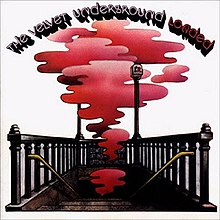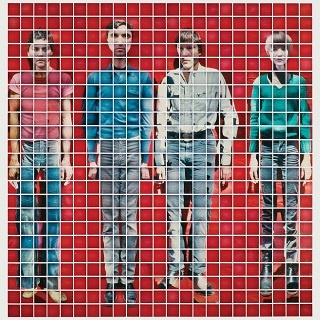
Loaded (1970)
Rating: 14
"Somethin's got a hold on me / And I don't know what"
Best Song: New Age or Sweet Jane
Worst Song: Train 'Round the Bend
I'm not even gonna try and hide my hand on this one -- as far as pop albums go, I insist there aren't many much better than this. I know it has its haters, and the majority just hold it up as a "pretty good" addition to the Velvets' legacy, and I know it makes me super uncool, but I can't help it -- I think this gigantic cheesy poppy sell-out is their best work, and it's easily one of my favorite albums of all time. As far as smile-inducing music goes, I really don't think one can beat Loaded.
For the uninitiated, the legend goes that after the paltry sales of The Velvet Underground, the band's record company advised Lou to write an album "loaded with hits". Obviously, knowing how cynical Reed can be, it should come as no surprise that quite a few of these tracks come off as parodies of 60s pop: "I Found a Reason" is a ridiculously schmaltzy doo-wop ballad complete with a dramatic spoken-word confession of love from Reed (when he begins reciting with that deadpan "Honey...", it's everything I can do to keep from cracking up), and the opening "Who Loves the Sun" is an exceedingly cheery, Turtles-or-Zombies-esque pop song complete with goofy wordless backing vocals and a completely accessible melody. Nevertheless, as ironic and sly as these tracks may be, they're still completely brilliant from a songwriting perspective. They're silly pop songs, sure, but they're GREAT silly pop songs, full of brilliant little details. Take, for example, the bridge of the latter, where the track randomly derails into an acoustic-led vocal harmony breakdown and then shuffles back into the chorus just as fast as it left it. Or the outro of "I Found a Reason", where the mood suddenly turns from romantic to completely desperate, with the almost-haunting mantra of "You better come, COME COME, COME to me" gradually fading the tune out. The entire album is full of incredibly effective and memorable little moments like these, and these aren't even the very best songs!
"Sweet Jane" definitely is, though, but you probably already know that one. On the off chance you don't, then by god, you should -- it perfectly captures Reed's magical ability to craft songs that are both rambling and anthemic, and it's one of his very best. It just keeps growing and growing and building and building, culminating in that synth-led climax (a synth-led climax! in 1970!!) with Doug and Lou shouting as triumphant a cry of "LA LA LA LA LA LA LA LA!" as I've ever heard, followed by some more joyous chants of the title. It's a classic, dammit. And not much worse is the breezy California soft-rock of "Rock & Roll", another of the band's most famous tracks. It deserves the status, too, with its frenzied mid-section, fun lyrics, and memorable laid-back guitar riffs. Equally triumphant and joyous is the pounding "Head Held High", cleverly kicked off by a soothing choral intro. This first impression is quickly offset by a startling drum fill, followed by some of Lou's most rowdy, energetic vocal work ever. I don't know what else there is to say -- just like the other two anthems I've mentioned, it's got a passionate buildup, an incredibly catchy melody, and an epic climax featuring the band chanting the title for all its worth. Silly, throwaway pop formula? I guess so, man, but there aren't many other songs in the world that give me as much joy as these do.
And besides, it's not like the album is nothing but upbeat soft-rock anthems -- far from it! You've got some fun, catchy country-rock (the fantastic "Cool It Down", the less-fantastic-but-still-entertaining "Lonesome Cowboy Bill"), some groovy feedback-driven experimentation ("Train 'Round the Bend", which admittedly is kinda weak, but is more or less saved by the aforementioned production experiments), and a 7-minute proto-power-ballad with an extended outro full of guitar heroics ("Oh, Sweet Nuthin'", which makes for a fantastically anthemic closer along the lines of "Hey Jude" or "You Can't Always Get What You Want""). And the very best song of all just might be "New Age", a song that strives for the late-night mood of The Velvet Underground and manages to do it even more effectively. From the tepid opening of "Can I have your autograph?" all the way up to the explosive, chillbump-inducing proclamations that it's "The beginning of a new age", I can't think of a much better classic rock ballad than this one.
Of course, it's pretty obvious that Loaded has next-to-nothing to do with the Velvet Underground's legacy to this point, and if you're a jaded indie guy who worships at the altar of White Light/White Heat and Nico, then there's a decent chance this album just might disgust you. It's super soft, super happy, and virtually inoffensive -- virtually everything the band in its earlier incarnation was trying to rebel against. But if you go into it with an open mind, and understand that good pop music is just as valid an artistic medium as noisy, droning experimentation, then I don't see how one couldn't enjoy the living daylights out of this.




